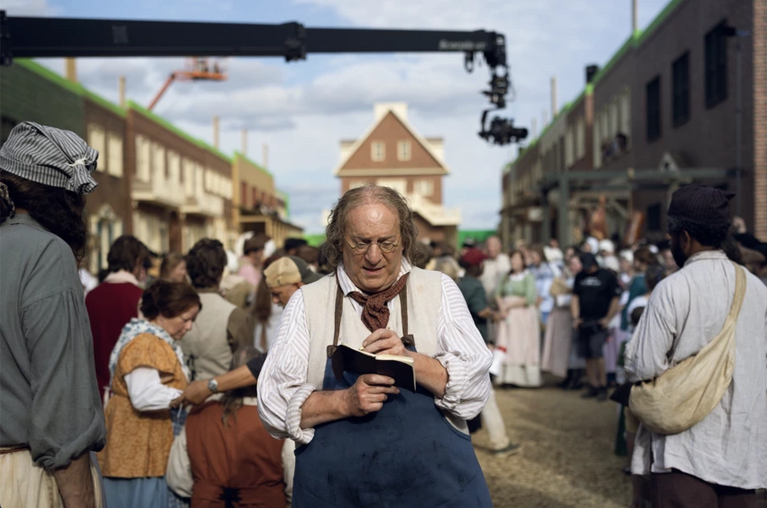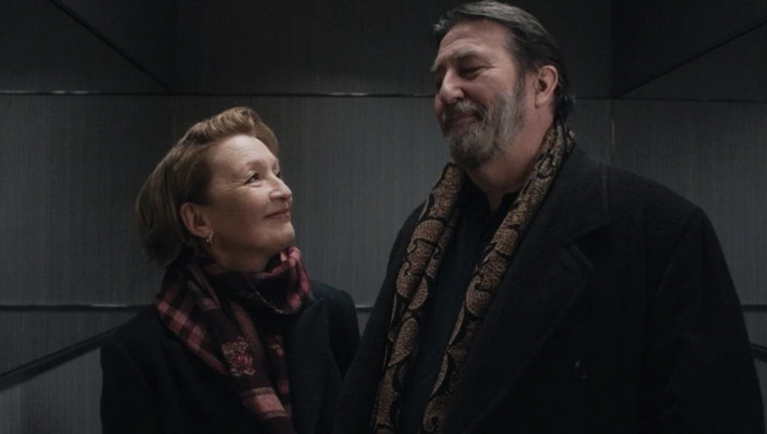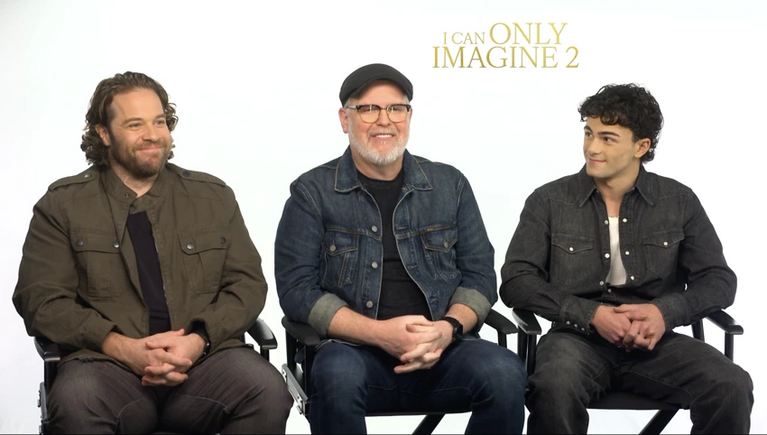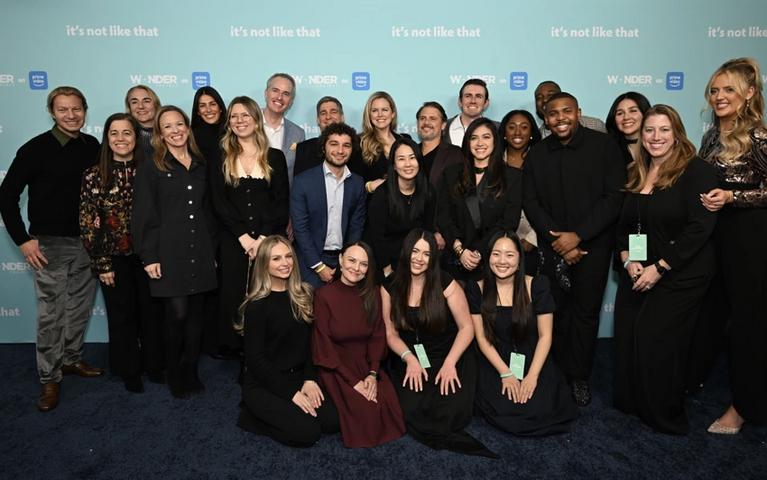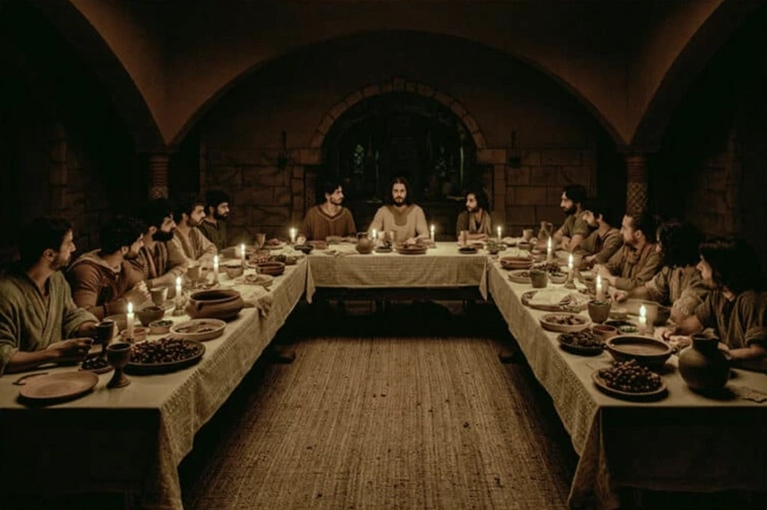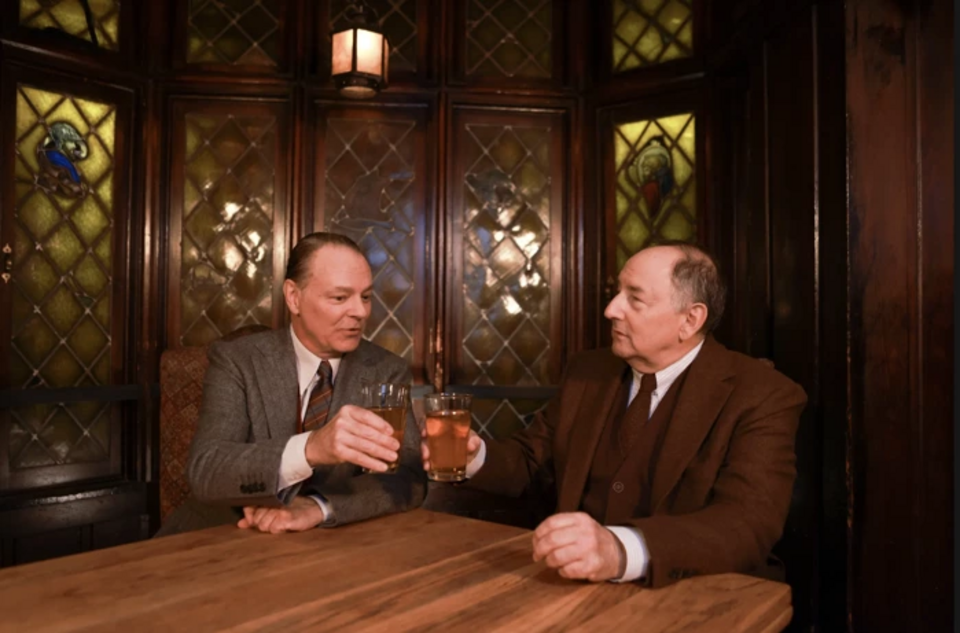
Inside the Museum of the Bible’s World Stage Theater, two of the 20th century’s greatest literary minds meet again.
In “Lewis & Tolkien,” a new play by Dean Batali (“That ’70s Show,” “Buffy the Vampire Slayer”), audiences are invited into an imagined reunion between C.S. Lewis and J.R.R. Tolkien, a personal conversation about friendship, faith, grief and creativity.
Matthias Walther, chief marketing officer at the Museum of the Bible, told The Christian Post that the play embodies the Washington, D.C.-based museum’s mission to create spaces where art, intellect and Scripture intersect.
“We’re always looking for plays or events that expand our focus,” Walther said. “We’re not just a concert venue; we have theater plays, podcasts and immersive experiences. We want to be as broad as possible. And with C.S. Lewis, it really felt like an opportunity to let people experience his appreciation for Scripture and faith in a new way.”
The play, which opened Oct. 30 and runs through Nov. 30, follows a year of programming at the museum dedicated to Lewis and his literary circle, the Inklings. Alongside the stage production, the museum also features a special exhibit on Lewis, and Walther said another Lewis-focused play is slated for spring 2026.
The imagined conversation between Lewis and Tolkien, set in a pub in their later years, touches on the enduring relevance of their works: The Chronicles of Narnia, The Lord of the Rings, Mere Christianity and The Screwtape Letters.
“That’s the strength of this play,” Walther said. “You would think, ‘Well, what happens in the past is the past,’ but there’s so much we can still learn from them. Their work is as current as ever. I recently listened to the audiobook of Mere Christianity, and it’s fascinating how relevant it still is today.”
According to Walther, the museum’s recent studies suggest that younger audiences, particularly Gen Z, are drawn to the question of relevance.
“We were surprised that the majority of interest in the museum is coming from the younger generation,” Walther said. “Gen Z is curious. They ask questions, sometimes uncomfortable ones, and they approach things from the heart first. For them, beauty and emotion often come before understanding.”
For Walther, "Lewis & Tolkien" is as much about beauty and pain as it is about intellect and theology, two themes that defined the lives of its titular characters. It’s that struggle, he said, that makes the play so resonant with audiences today.
“They didn’t have easy lives; they lived through war,” he said. “Their faith wasn’t theoretical. It was forged through suffering and uncertainty. God didn’t promise to give us explanations for everything we experience, but He promised to be with us. That’s something both Lewis and Tolkien wrestled with and discovered.”
“The performance is intimate and personal,” Walther said. “People cry, people laugh. You feel like you’re sitting in on a conversation between two old uncles, listening to them debate what faith means and how to live it out.”
The Museum of the Bible has hosted several C.S. Lewis productions, including "Prince Caspian" and "The Horse and His Boy," and Walther said the response has been consistently emotional.
“People just resonate with it,” he said. “Yes, there’s some of the movie hype, but much of it comes from how these stories use metaphors and imagery to make deep theological truths come alive. C.S. Lewis was a master of that, just like Jesus, who used parables.”
He added that Lewis’ depiction of Aslan, the great lion of Narnia and allegory for Jesus, is one of the most powerful examples of how storytelling can make the divine accessible.
“Aslan isn’t a pet or a buddy; he’s mighty, he’s dangerous, he’s God,” Walther said. “Through those pictures and analogies, Lewis made the attributes of God come alive. He showed that faith isn’t abstract; it’s relational.”
Walther stressed that "Lewis & Tolkien" is part of the museum’s broader effort to engage audiences emotionally as well as intellectually. Beyond traditional exhibits featuring ancient manuscripts and artifacts, the Museum of the Bible has invested in immersive experiences and live productions that bring Scripture to life.
“Nobody owns the Bible,” Walther said. “We’re an apolitical, non-sectarian organization. We simply want to expose people to the Bible and trust that God’s Spirit will use what happens here to draw people closer to Him.”
He pointed to All Creation Sings, a 360-degree panoramic exhibit located on the museum’s lower floor, as another example of that mission in action.
“It’s a fully immersive experience that explores the intersection of worship and Scripture,” he said. “It’s emotional. It’s another way to connect with God beyond reading or studying. Theater, art and worship all help people experience the Bible differently.”
Though both authors were devout Christians, Walther said "Lewis & Tolkien" is designed to appeal to both devoted fans of the authors and those who might know little about them or about faith.
“We’re living in the era of podcasts,” he said. “So think of the play like a beautifully produced, live podcast. You’re drawn into a pub where Lewis and Tolkien meet, share a drink, exchange stories, and challenge each other. Whether you’re a die-hard fan or someone just curious about faith, you’ll find something to connect with.”
As chief marketing officer of the Museum of the Bible, Walther said his definition of success isn’t limited to ticket sales or attendance numbers. The goal, he said, is transformation, however subtle it may be.
“Our mission is to invite all people to experience the transformative power of the Bible,” he said. “When we say all people, we mean it. We’ve had Muslims visit and write us afterward saying every Muslim should come here. We’ve hosted Buddhist monks, homeschool moms, scholars, skeptics. Everyone is welcome.”
“We’re not measuring success by whether someone converts at the end of a visit,” he added. “We want to be a stage on their faith journey. Maybe they leave feeling more curious, more hopeful, or more connected to God. Maybe they start reading the Bible again or find a church. Whatever the next step is, we just trust that God will take them further.”
"Lewis & Tolkien" runs through Nov. 30. Tickets and information are available at museumofthebible.org.

